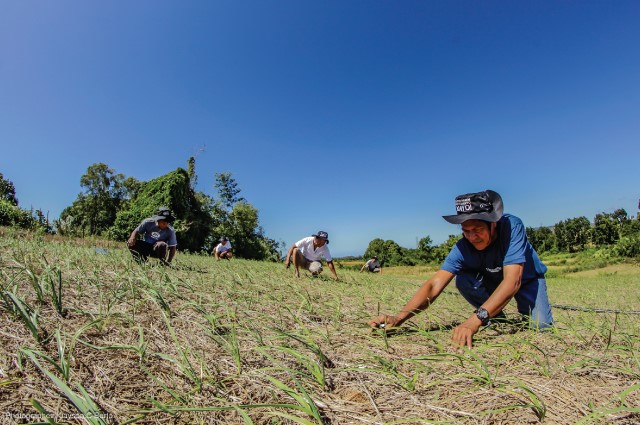 With the onslaught of El Niño and the summer season fast approaching, an expert advises farmers to take necessary precautions against heat stroke.
With the onslaught of El Niño and the summer season fast approaching, an expert advises farmers to take necessary precautions against heat stroke.
Dr. Raul V. Destura, an internal medicine and infectious disease specialist, says that heat stroke is one of the most common health risks among farmers who work under the scorching heat of the sun.
According to Destura, heat stroke, also known as sun stroke, is a severe heat illness with body temperature that is greater than 40.6 °C (105.1 °F), mostly due to environmental heat exposure.
“Most of the time, heat stroke becomes unnoticed or undiagnosed among the rural health units,” Destura said.
He added that people who experience this are sometimes thought of as “na-maligno” or under the control of a superficial creature when in fact, altered mental state or behavior is one of the symptoms of this illness.
Other symptoms of heat stroke include an alteration in sweating, nausea and vomiting, flushed skin, rapid breathing, racing heart rate, and headache.
“If it’s heat stroke, your skin is dry. If you’re over-exercised, you get a moist skin,” Destura clarified.
Immediate interventions for heat stroke is to get the person into shade or indoors, remove excess clothing, keep him hydrated, and cool him with whatever means available.
This may include putting the person in a cool tub of water or shower, spraying with garden hose, or sponging cool water. Placing ice packs or wet towels on the person’s head, neck, armpits, and groin is also a measure that can be done.
Meanwhile, rice farmers are also highly exposed to respiratory ailments especially during the harvest season when they get to inhale dust particles from threshing. This may also cause allergies and skin infections.
Chemical exposure from the wrong use of pesticides is also risky. Destura, therefore, advises farmers to use protective equipment such as facemasks and gloves.
Considering these health risks, Destura strongly recommends that occupational health risks “must be comprehensively integrated in rice farming management.” He encourages a multidisciplinary approach that includes health of the farmers.
Mechanized farming is also one of his suggestions to reduce biological risks with proper training and machine maintenance to avoid mechanical accidents.
Lastly, he encourages farmers to consult a doctor immediately if they have any health concern. Destura also emphasized that doctors and health experts must direct their studies to practical applications that benefit the health of the farmers.
“We need to generate agricultural productivity without too much compromise on our farmers’ health,” he ended.
Destura’s talk on “Health Risks in Rice Farming” was featured in a seminar-series at the Philippine Rice Research Institute (PhilRice) earlier this year. He is currently the Chair of the Institutional Biosafety and Biosecurity Committee of UP Manila.




